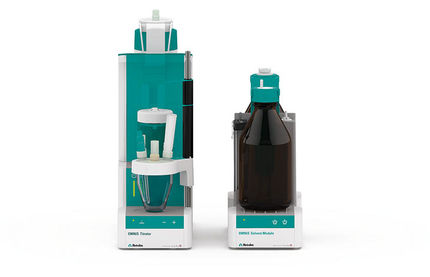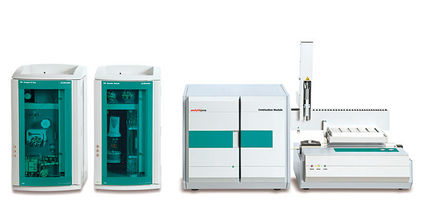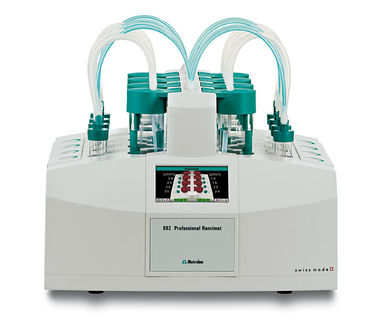To use all functions of this page, please activate cookies in your browser.
my.chemeurope.com
With an accout for my.chemeurope.com you can always see everything at a glance – and you can configure your own website and individual newsletter.
- My watch list
- My saved searches
- My saved topics
- My newsletter
KOWARI - Residual-Stress DiffractometerKOWARI is the name of the new neutron Residual Stress Diffractometer at Australia's new research reactor OPAL, ANSTO. Product highlightStrain scanning using thermal neutrons is a powder diffraction technique in a polycrystalline block of material probing the change of atomic spacing due to internal or external stress. It provides a diagnostic non-destructive tool to optimize e.g. post-weld heat treatment (PWHT, similar to tempering) of welded structures. Tensile stresses for example drive crack growth in engineering components and compressive stresses inhibit crack growth (for example cold-expanded holes subject to fatigue cycling). Life extension strategies have high economic impact and strain scanning provides the stresses needed to calculate remaining life as well as the means to monitor the condition of components since it is non-destructive. One of the main features is the sample table that will allow to examine large engineering components while orienting and positioning them very accurately. KOWARI is part of the Bragg Institute's park of neutron scattering instruments. It got its name from the Australian marsupial Kowari. |
| This article is licensed under the GNU Free Documentation License. It uses material from the Wikipedia article "KOWARI_-_Residual-Stress_Diffractometer". A list of authors is available in Wikipedia. |







